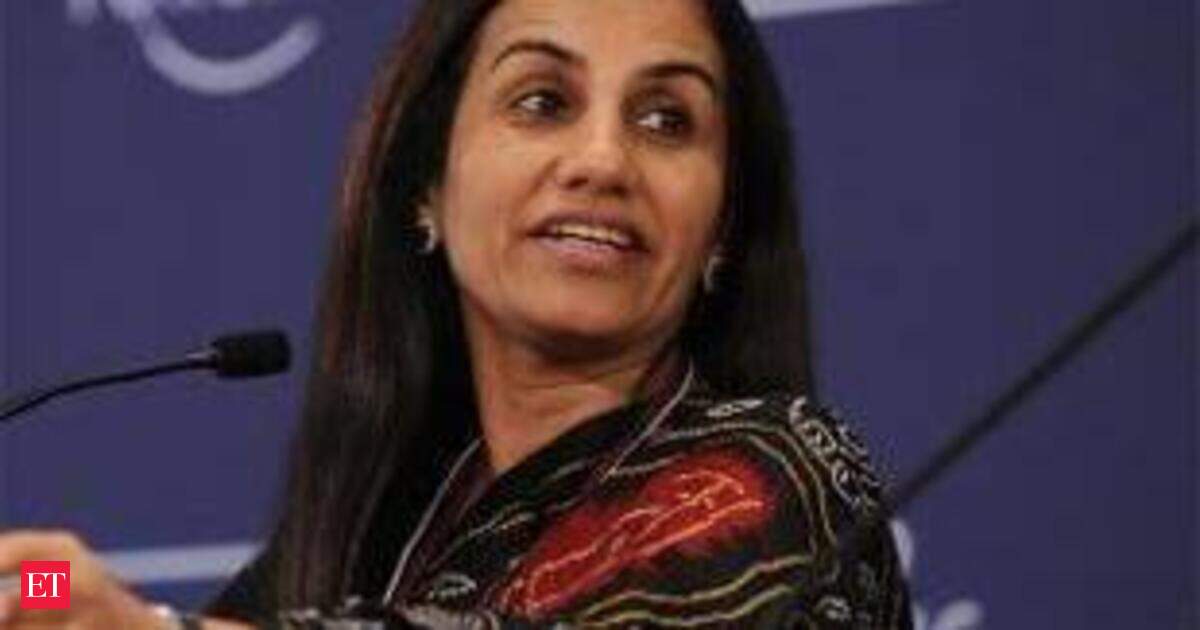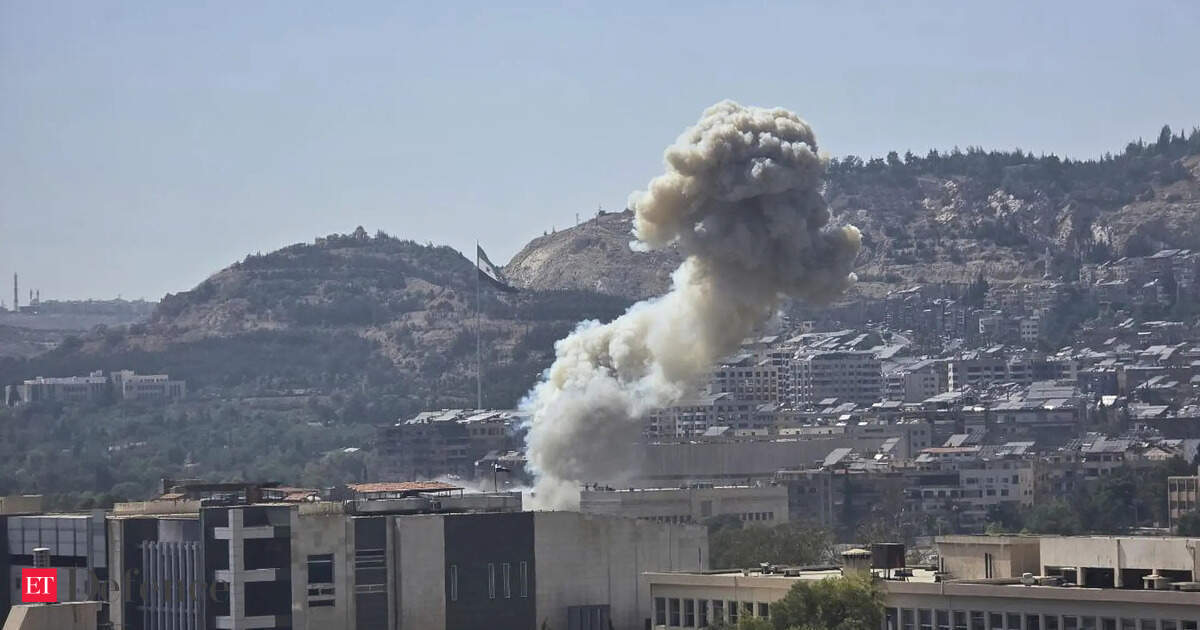Her spectacular ascent, her transformative leadership at ICICI Bank, the global recognition she earned, were all erased by her ethical breach.
From middle-class girl to the queen of Indian banking
Born in 1961 in Jodhpur and raised in Mumbai, Chanda Kochhar’s early life was shaped by resilience. Following the early demise of her father, she was raised by her mother and went on to graduate in Economics from Jai Hind College. She later completed her MBA from the prestigious Jamnalal Bajaj Institute of Management Studies, where she stood out for her analytical ability and focus. In 1984, she joined ICICI (then a development financial institution) as a management trainee. In an era when few women occupied meaningful positions in banking, her entry marked the beginning of a pioneering journey.
Also Read: A ₹3,250 cr loan, ₹64 cr bribe & ICICI’s top banker’s alleged role in it
Kochhar’s rise within ICICI was swift and steady, aided by her relentless work ethic and deep understanding of credit, risk and project finance. A major turning point came in the 1990s, when KV Kamath, then CEO of ICICI, recognized her potential and brought her into the core team driving the organization’s transformation from a developmental finance agency to a full-fledged bank.
She was given charge of the fledgling retail business in 2000, just as ICICI was transitioning into a commercial bank. Under her leadership, ICICI’s retail banking arm grew exponentially. She built an aggressive retail lending portfolio — home loans, car loans and personal finance — that helped ICICI become a household name in India’s expanding middle class. Kochhar not only handled product and credit innovation, but also developed risk models that made retail lending scalable.
By the time she took over as MD & CEO of ICICI Bank in 2009, following Kamath’s retirement, Kochhar had already emerged as one of the most recognizable names in Indian finance. Her elevation marked a historic moment — she was among the first women to head a major private bank.
Her leadership coincided with turbulent times. The global financial crisis of 2008–09 had shattered investor confidence, and ICICI was facing rumors of insolvency. Kochhar stepped into the role during a storm and her calm yet decisive leadership played a pivotal role in steering ICICI Bank out of it.
Kochhar handled professional crises with ease and deftness. As the bank’s retail head, Kochhar was part of the team that had to deal with a run on the bank in 2003 that began in Gujarat following rumours of liquidity crisis. After taking charge as joint managing director during the global financial crisis, she had to again battle a near-run on the bank caused by rumours. When in 2009 she took charge of the bank at the age of 48, becoming the youngest CEO to do so, a large chunk of the senior management exited. Kochhar was unruffled and drew up a post-crisis strategy, with the focus on 4Cs (Cost, Credit, Current and savings account, and Capital). The clearly articulated strategy was a success and the bank was again on a high growth path.
She focused on strengthening the balance sheet by cutting exposure to risky sectors, consolidating the bank’s retail portfolio while reducing NPAs and investing heavily in technology, laying the groundwork for ICICI’s digital banking evolution. Over the next few years, she would face further macroeconomic headwinds: the rupee crisis in 2013, rising bad loans in the banking sector, and regulatory tightening by the RBI. Yet ICICI Bank under her leadership remained resilient and competitive.
Her achievements brought her a shower of accolades including Padma Bhushan in 2011, one of India’s highest civilian honors. She was named in Forbes’ “World’s 100 Most Powerful Women” multiple times and featured in Time magazine’s list of 100 Most Influential People in 2015. She was recognized as one of the most powerful business leaders in Asia. For nearly a decade, she was not just the face of ICICI Bank, but a global ambassador for Indian banking and women’s leadership.
Kochhar’s skill of time management has seen her through difficulties. According to a TOI report, insiders say that one of the reasons why she has been able to carry on even in difficult circumstances was that she always maintained a tight schedule, budgeting even the time during her car ride for telephonic engagements. Time management was an art that she had mastered when her children were growing up, ensuring that she managed to leave office around 6pm even as she continued to work out of her car. The family-first approach has continued even after she became CEO, squeezing in a lunch meeting with her husband or working out of the ICICI Securities office at Backbay in south Mumbai, a few hundred meters from her home, when a family member was unwell.
Kochhar leaves a conflicting legacy
Despite the sheen of global success, by 2016, whispers of conflict of interest began to surface. In 2018, a whistleblower complaint accused Kochhar of granting undue favors to the Videocon Group in the form of a Rs 300 crore loan, part of a larger consortium deal. What made it scandalous was the claim that her husband, Deepak Kochhar, had financially benefited shortly thereafter through his company, NuPower Renewables, which allegedly received Rs 64 crore from a firm linked to Videocon. An internal probe was launched, and despite her denial of any wrongdoing, Kochhar went on leave and then resigned from ICICI Bank in October 2018.
The investigations by the CBI and later the Enforcement Directorate uncovered a web of shell companies and related-party transactions. In 2023, she and her husband were arrested and formally charged. The case became a national sensation — not just for the alleged crime, but for the magnitude of the betrayal by someone once seen as the epitome of ethical banking. On July 3, 2025, the appellate tribunal confirmed the findings: the transaction was a “clear case of quid pro quo,” facilitated through her husband’s company to benefit personally from her position at ICICI.
Kochhar’s story is now one of duality. On one hand, she was a woman who defied patriarchal ceilings, modernised Indian banking, and earned the admiration of millions. On the other, she allowed personal interests to compromise professional integrity at the highest level.
The arc of Kochhar’s life mirrors both the promise and peril of modern capitalism in India. She represented what the new India could achieve — ambitious, competent and global in outlook. But she also revealed how power, if unhinged from ethics, can erode organisations. As Indian banking moves forward, Kochhar’s legacy will stand as both inspiration as well as indictment.




